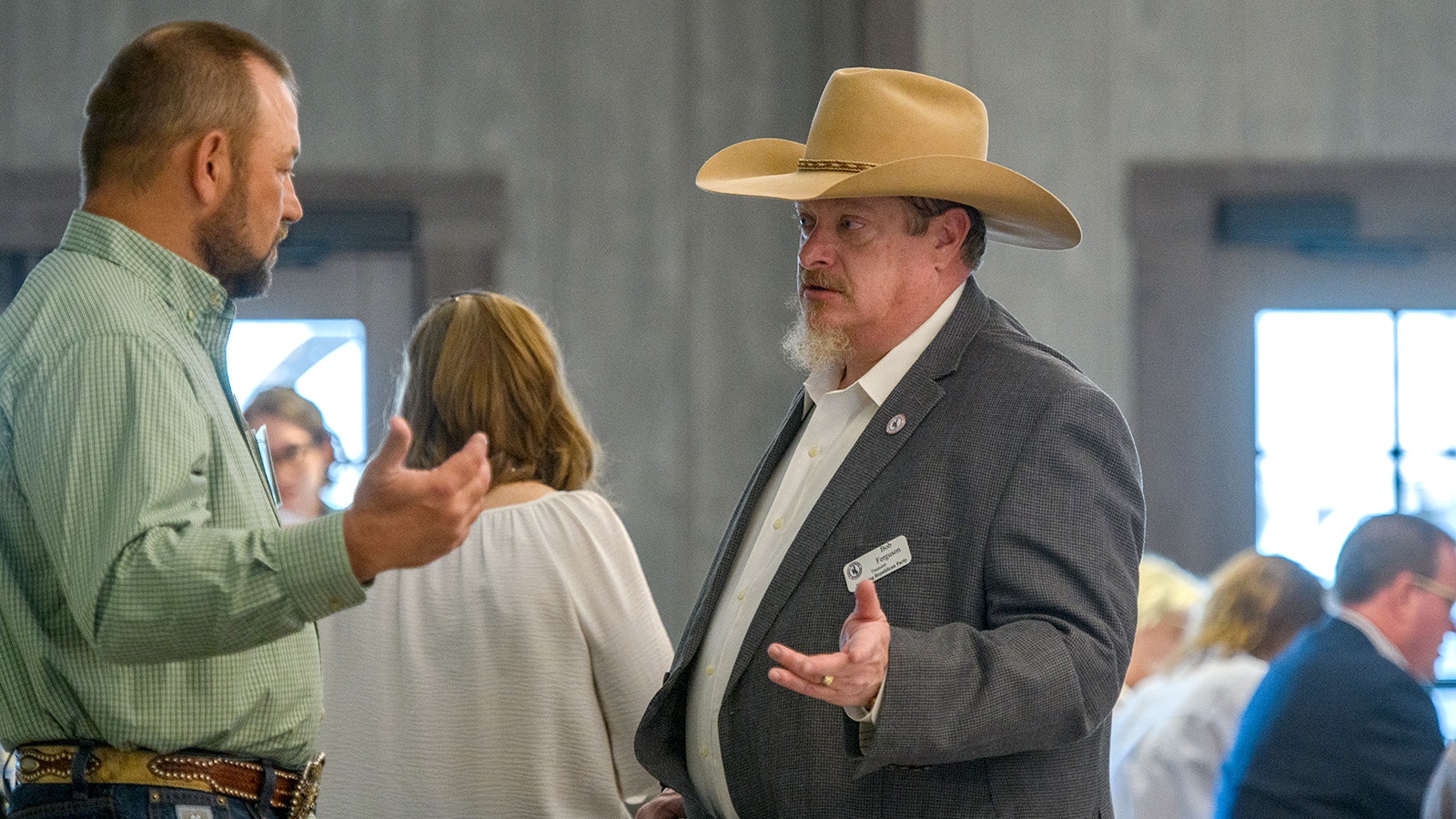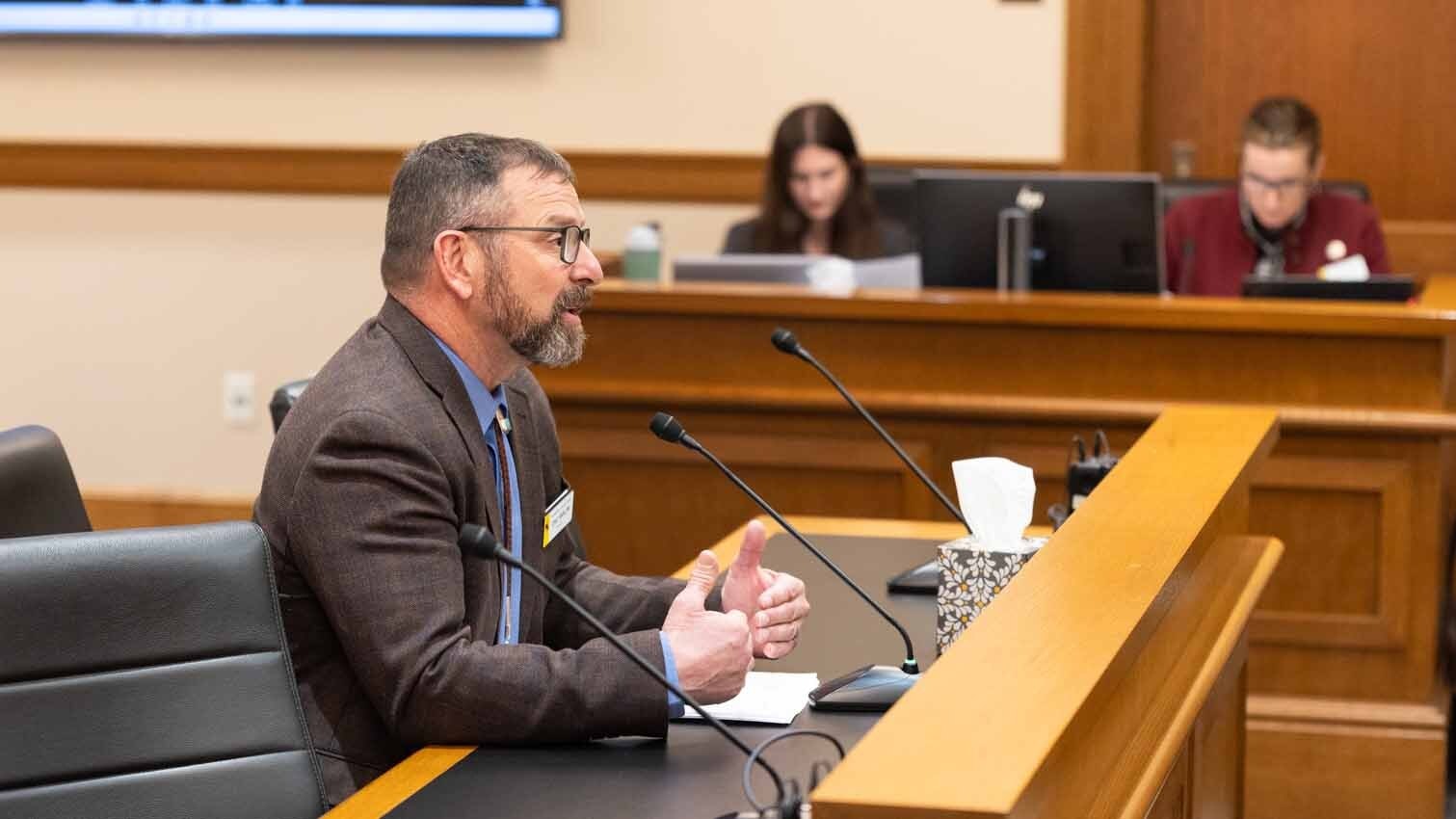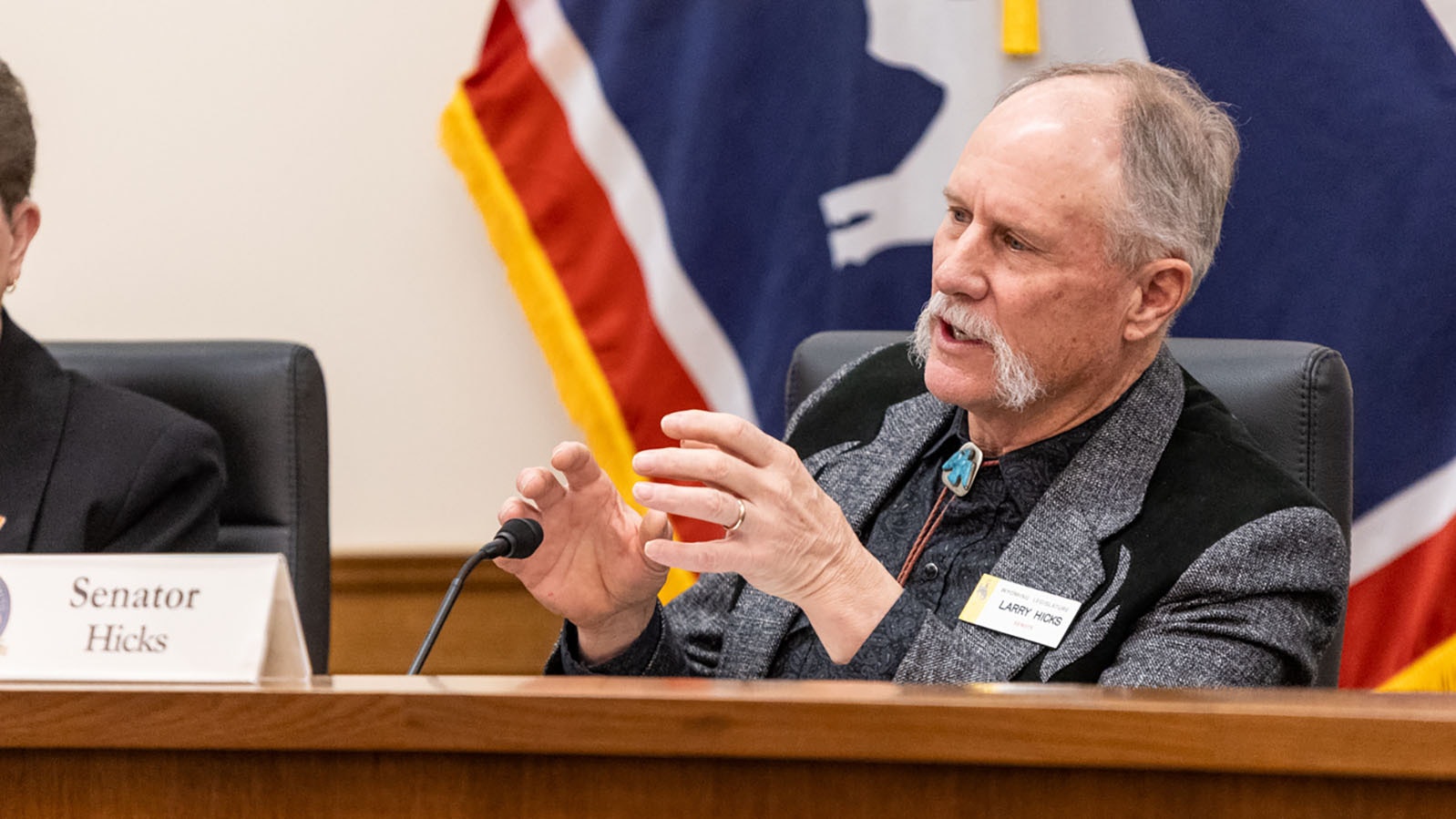When Laramie County Republican Party Chairman Taft Love announced at the state GOP’s meeting Saturday that his county party will pay its biennial dues, it sent a message beyond fixing a minor bookkeeping issue.
The pledge signified a possible bridging of fissures within Republican ranks as the state party has feuded with some county-level party groups over money.
“I hope this will help turn the page and start working together,” Love said.
The issue of dues owed by county parties to the state organization has been a source of significant controversy within the Wyoming Republican Party in recent years.
Laramie County hadn’t paid any of its biennial dues since early 2022. The county party initially voted to stop paying toward its $12,099 balance after the state party voted to only seat three of Laramie County’s 37 delegates at the state convention last spring for a rule infraction that happened at its county convention.
The Laramie County GOP reversed course on its dues dispute earlier this spring, voting unanimously at its last meeting to pay off the debt.
“It was obvious we had some dissension among our ranks and that we needed to pull everybody back together,” Love said. “My idea has been to listen to both sides and to hear what our people are saying again and do the best I can to navigate the waters to put us all back together.”
Meier Gives $5,000
Love said he recruited private money to help pay off the county party’s debt after being elected as chairman in March.
Also contributing toward the balance was Wyoming Treasurer Curt Meier, who gave $5,000 on Saturday, making the announcement with tears in his eyes. The party paid $6,273 from its own coffers, and Love vowed to pay the first half of the county’s 2023-2025 biennium shares by July 1.
When he announced the plan to pay, Love received a standing ovation.
Past History
Former Laramie County Republican Party Chairman and current committeewoman Dani Olsen told Cowboy State Daily in November the county party was informed it would not be allowed to seat more than six delegates at the state convention in 2024 — whether or not it pays the remaining amount owed any time in the future.
Park County Committeeman Vince Vanata said this is no longer the case, and Wyoming Republican Party Treasurer Bob Ferguson said Laramie County is now in good standing financially with the state party.
Also receiving the minimum allotment of seats at the convention was the Natrona County GOP, which hasn’t paid dues since 2019.
Natrona County was involved in a lawsuit against the state party until late last summer over the procedure the Wyoming GOP used at its 2020 convention to adopt bylaws that require each county party pay its dues or risk losing delegates.
At the 2022 convention, Natrona County was only allowed to seat six of its 33 delegates because of the owed fees.
It remains delinquent $25,217 to the state party.
Many from Natrona and Laramie counties expressed outrage about the number of delegates stripped from their parties.
Those counties represent the highest number of registered Republican voters in the state’s two most populous counties. They also tend to be more moderate politically than the rest of the Republican county parties in the state.
Although the dues, known as county shares, are charged biennially, half must be paid each year or a small fine is charged.
County shares make up 20% of the party’s total revenue. Natrona and Laramie counties’ owed shares combined for 7% of the party’s total budgeted revenue for the biennium.
What Do Dues Go Toward?
County shares go toward paying the expenses of the state GOP office in Cheyenne and party Executive Director Kathy Russell’s salary. But Russell said the $115,000 total budgeted for these two expenses in the current biennium still won’t cover the real total costs.
On Saturday, the party voted to increase county shares in the next biennium up to $125,000.
A population-based formula is used to calculate how much money each county party owes. Niobrara, the least populated county in the state, owed $1,556 for the current biennium.
The topic of county shares became a major point of debate during the elections for state chairman Saturday.
Chairman candidate Frank Moore said he would get rid of county shares if elected, making the dues voluntary costs for the county parties.
“The county parties are better situated to determine how their grassroots funds are to be spent,” he said. “Rather than make you pay for our operating expenses, we’ll pay our own way — a conservative Republican concept.”
Moore would have had to receive the support of the party to enact his plan, which could not take place until the next party convention in 2024 where bylaw changes are approved.
A rather pointed question was posed to Moore on this topic during a Q&A session, where he was asked to explain the positives and negatives of county shares. Moore held firm on the topic, only criticizing the practice and saying it was being used as a tool of political leverage beyond raising funds.
Republican Party Chairman Frank Eathorne expressed skepticism about the idea of getting rid of county shares and said it could lead to the state party hamstringing local fundraising efforts.
“If we eliminate that, then what can happen is the state party … we come in your county to raise funds and you say, ‘Hey, this is our territory, these are our current donors,’” Eathorne said.
Eathorne beat Moore by a 49-25 vote for an unusual third consecutive term.
Fundraising Focus
Moore made fundraising a major aspect of his campaign for chairman. He mentioned during his speech Saturday how the party only gave $16,500 to candidates statewide during the 2022 election cycle, despite $50,000 being originally budgeted.
“We should commit to spending 10 times that amount,” Moore said.
A tenfold increase in campaign support would mean $148,500 more raised. Coupled with the commitment to get rid of county shares, Moore would have had to raise at least $263,500 more annually to make these commitments.
Former state legislator and party Central Committee member Tom Lubnau said a much smaller focus was placed on county dues in the past because the party raised much larger sums from private donors. Because of that, he said smaller county parties were often forgiven for not being able to pay their dues.
“The party shares only became an issue when the party took a certain position and made the donors mad,” Lubnau said.
Follow The Money
As of Saturday, the party had $55,273.29 in its coffers.
Party funding has taken a precipitous decline in recent years. In December 2015, the party had $90,489 in the bank. After reaching $175,709 in December 2018, that total declined in the years following to $69,085 by December 2022.
The party’s fundraising totals have consistently declined in the past four years. In 2018, the party raised $1.2 million. Despite 2020 being an election year and receiving a $346,327 donation from former President Donald Trump’s campaign, it still only hauled in $1.03 million. During the 2022 election cycle, the party brought in $967,810.
“That changed under the Eathorne administration,” Lubnau said. “They want to tax you and take your money and not give you representation.”
Sheridan County Republican Party Chairman Bryan Miller said the party doesn’t need to raise as much money as it did in the past.
“Money is the problem — that is the problem in Washington, D.C.,” he said. “There shouldn’t be a few Wyoming donors giving the party all its money.”
Ferguson and Eathorne also pointed to the fact that the late spring is typically a low time of the year for the party’s financial reserves.
“Because we’re in between election season,” Eathorne said. “Enthusiasm is low and yet we’ve been able to reach a point that is higher than the typical low point for this part of the biennium.”
Eathorne acknowledged a turnover in donors, which he described as “a particularly challenging, rewarding venture.”
Russell said also hindering the party’s fundraising efforts in recent years is that many people have started donating directly to political action committees or candidates rather than directly to the party.
Many Eathorne supporters also pointed to the fact the party has paid off all of its ongoing lawsuits as a sign that its finances are improving. The party piled up $89,000 in legal fees in the last biennium from lawsuits it has fought in recent years. A few of the party’s recent digital fundraising efforts were successful, raising $82,552 from a direct mailing drive, slightly exceeding the goal for that program.
Do Dues Work?
County shares were first instituted in 1995, which Russell said was originated to cover federal compliance costs for the state party. Prior to that time, a system similar to the fundraising mechanism Moore proposed existed.
“I think we’re at a formula that works,” Eathorne said. “It’s successful, it’s consistent, it’s fair.”
Eathorne said the county shares system is somewhat unique to Wyoming.
Ferguson said he’s not necessarily beholden to the county share fundraising system.
“This party is not funded exclusively by county shares by any stretch of the imagination,” he said.
The idea of getting rid of county shares is not necessarily dead now that Moore lost the election. This issue could still be brought up and addressed at the party’s convention next spring.
Contact Leo Wolfson at Leo@CowboyStateDaily.com.





